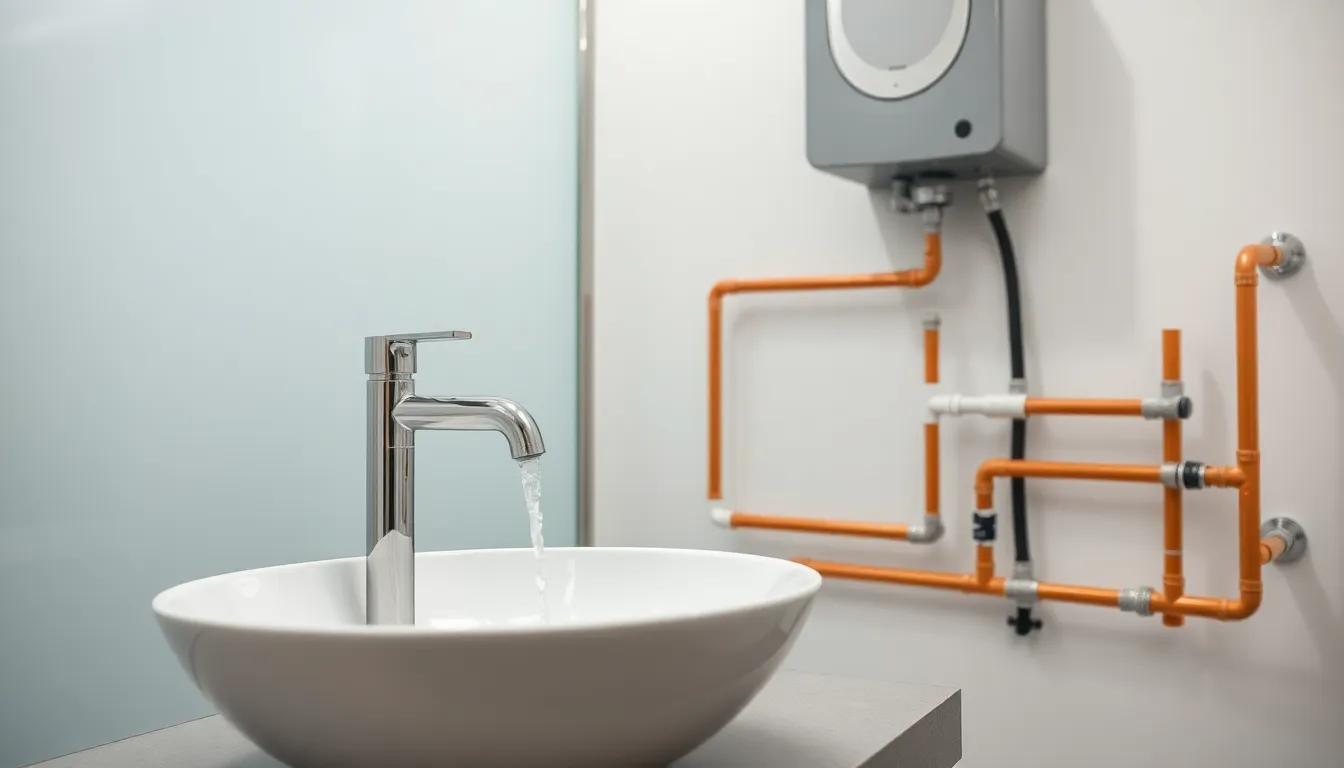Picture this: you’re enjoying your morning coffee when, suddenly, a waterfall erupts from under the kitchen sink. A delightful surprise? Not quite. Home plumbing maintenance is key to keeping your daily life running smoothly and avoiding underwater disasters. Understanding your plumbing system, tackling common issues, and staying ahead with preventive maintenance tips will save you time, money, and a fair amount of frustration. Immerse to discover the secrets to a well-maintained plumbing system that will make you feel like a home improvement guru.
Table of Contents
ToggleUnderstanding Your Plumbing System

Your home plumbing system is much like the circulatory system of your body, and knowing its ins and outs is crucial for everyone.
Key Components of Plumbing Systems
Think of a plumbing system as a complicated machine made up of several key components. From pipes and fixtures to water heaters and fixtures, each part plays an essential role in ensuring water flows where it needs to go.
- Pipes: Generally made from materials like PVC, copper, or PEX, these arteries deliver water to various parts of your home.
- Fittings: These connectors link pipes and guide water through bends and turns.
- Fixtures: Faucets, toilets, and showers, these are the outlets through which you interact with the plumbing system.
- Water Heaters: Key for providing hot water, but often forgotten until there’s a cold shower waiting.
Knowing these fundamentals can empower homeowners to tackle maintenance clearly. Little knowledge goes a long way.
Common Plumbing Issues and Solutions
Even the most well-kept homes can experience plumbing issues. Here are a few common problems along with expert solutions.
- Leaky Faucets: A dripping sink not only wastes water but can also drive anyone mad. Often, replacing a worn-out washer can fix the problem and restore tranquility.
- Clogged Drains: Hair, soap scum, and food particles are notorious for creating blockages. A good plunge or a mixture of baking soda and vinegar can work wonders.
- Running Toilets: If the water in the toilet tank never seems to stop flowing, it’s likely a faulty flapper or a chain issue. Simple adjustments can save gallons of water and a hefty bill.
- Low Water Pressure: This could signal a serious issue. Sometimes all it takes is cleaning the aerators, while other times, it highlights bigger problems like pipe clogs or leaks.
Understanding these issues can prepare homeowners for swift troubleshooting, minimizing potential damage.
Preventive Maintenance Tips
An ounce of prevention is worth a pound of cure. Here are a few tips to keep plumbing issues at bay.
Seasonal Plumbing Checks
- Winterize Your Pipes: As temperatures drop, pipes risk freezing. Insulating them or letting faucets drip can prevent a frosty disaster.
- Spring Clean: After winter, schedule a thorough inspection. Check for leaks, clear gutters, and ensure sloped drainage to keep everything flowing smoothly.
- Regular Maintenance: Every few months, flush your water heater to remove sediment buildup, and check for unusual noises that could indicate a problem.
Tools for Basic Plumbing Maintenance
Equipping your home with essential tools can make plumbing maintenance a breeze. Here’s what every homeowner should have on hand:
- Plunger: Your first line of defense against clogs.
- Pipe Wrench: Perfect for gripping and turning pipes.
- Adjustable Wrench: Handy for tightening or loosening various plumbing fixtures.
- Drain Snake: A must-have for clearing stubborn clogs that a plunger can’t fix.
- Teflon Tape: Ideal for ensuring tight seals on threaded joints.
By being proactive, homeowners can significantly reduce the chances of emergencies and costly repairs.
When to Call a Professional Plumber
Even though the DIY spirit, some plumbing problems require a professional touch. Recognizing when to call a plumber can spare any homeowner unnecessary stress.
- Persistent Clogs: If basic fixes haven’t resolved a clog, a professional drain cleaning may be necessary.
- Major Leaks: A leak that can’t be contained is a clear signal to seek expert help.
- Water Quality Issues: Discoloration or unusual smells in water can indicate serious issues needing professional intervention.
- Home Renovations: If making significant changes, a professional can ensure the plumbing system accommodates those updates effectively.
Calling a plumbing expert can safeguard a home against further damage, making it a worthy investment.


